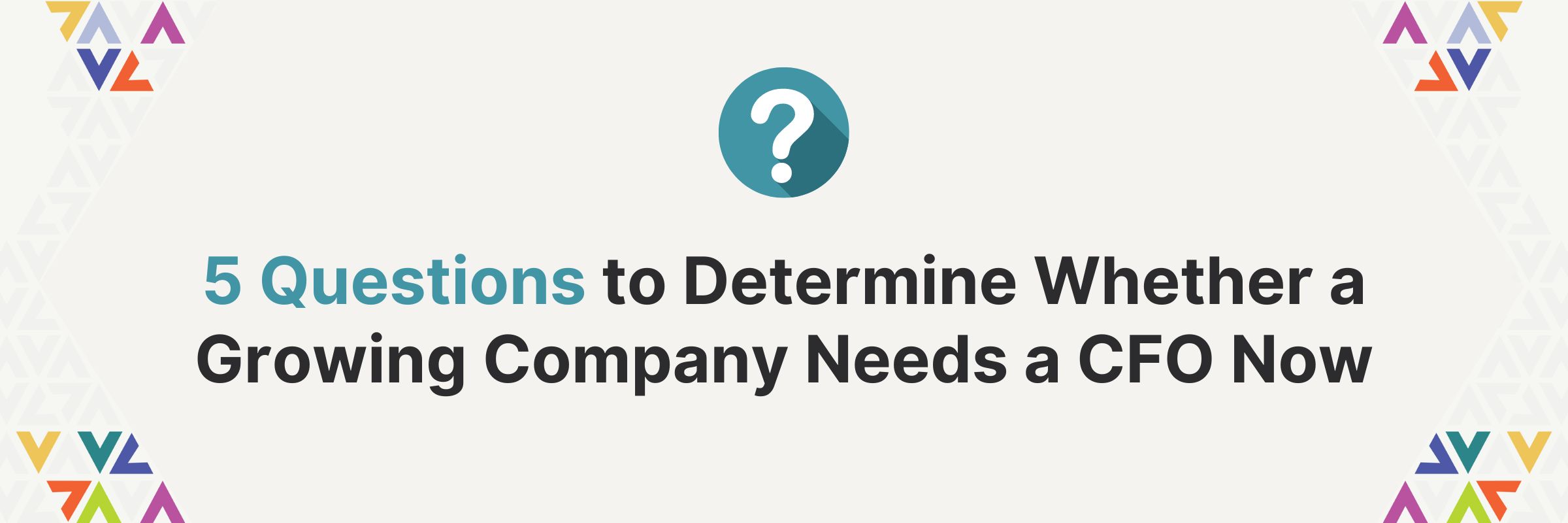
The strategic decision to advise a company to hire a Chief Financial Officer (CFO) earlier rather than later is increasingly recognized as a pivotal factor in scaling success. The complexity and velocity of financial operations demand expertise well beyond accounting to encompass strategic financial management, forecasting, and planning. Why might a company need a CFO now? Let’s explore five questions to find out.
1. How are Transactions Recorded?
The initial stage of any business involves setting up financial operations, which includes the method of recording transactions. Decisions made at this stage, such as whether to adhere to Generally Accepted Accounting Principles (GAAP) or to choose between cash or accrual accounting, profoundly impact the company’s financial health and compliance for years to come. A CFO ensures that these foundational elements and approaches are correctly established and strategically aligned with the company’s long-term growth objectives.
2. Are Financials Properly Connected?
Beyond the recording of transactions, making the right connections between financial activities can significantly affect collective strategic decisions. Often, founders oversee the budget and forecasts, while the bookkeeper and accountant manage the chart of accounts. This division can lead to disconnects. A properly built and maintained chart of accounts should seamlessly integrate the profit and loss statements with the budget and forecasts. When these are interconnected, the founder’s strategic vision aligns with how financial transactions are categorized and reported. Only through this connection can a company and its investors ensure financial clarity and make informed decisions for its future.
3. Are Systems Scalable?
Systems that work for a small startup may become bottlenecks when the company scales. For example, a founder might have historically recorded journal entries or deferred revenue schedules in Google Sheets rather than QuickBooks. We like to ask, “What is this going to look like when your company is ten times bigger?” A CFO’s foresight in selecting scalable solutions, like transitioning from manual processes to comprehensive systems such as SaaSOptics/Maxio, Ordway, NetSuite, or another system that automates financial complexity and volumes. This ensures the company’s growth is not hampered by its operational capabilities.
4. How is the Business Funded?
One of the most critical roles of a CFO in a growing company is navigating the complex landscape of funding and capital allocation. Right out of the gate, the founder’s choice between using personal savings, bootstrapping, taking on debt, or selling equity – and how they are managing those decisions – can act as signposts. The key is knowing where and how to deploy the capital. A seasoned CFO brings experience and insight into crafting a funding strategy that aligns with the company’s stage of growth, risk profile, long-term vision, and strategic goals.
5. What Strengths and What Blindsides are Present?
By identifying the company’s and founder’s strengths and potential blindsides, a CFO can guide the leadership team away from common pitfalls. Implementing a solid KPI dashboard, the CFO enables the company to track critical areas of operation, ensuring that the company is not “flying blind” and that the founder and leadership team have a clear viewpoint on where the company is headed.
For early-stage companies, the cost of a full-time CFO may be prohibitive. This is where fractional CFOs come into play, offering the expertise and strategic oversight of a seasoned CFO at a fraction of the cost. This model allows growing companies to benefit from high-level financial insights and strategic planning without the full-time expense. For investors, the early involvement of a CFO in companies signifies a commitment to disciplined growth, strategic risk management, and financial transparency. It ensures that capital is deployed effectively, maximizing the return on investment. A CFO’s expertise in navigating financial complexities safeguards the company’s growth trajectory and enhances its valuation and attractiveness to future investors, buyers, or IPOs.



